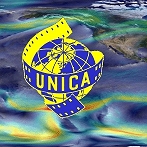
Member of the Jury 2017
Sunčica Fradelić (Croatia)
I was born in Osijek, Croatia. I grew
up living in many cities across former Yugoslavia including Zagreb,
Ljubljana, Pančevo, Belgrade and Split. Through my whole life, I
have enjoyed questioning and expressing ideas using visual language.
I’ve studied painting at Art Academy in Split, and during those
studies enrolled course in film-making held within the historical
Cine Club Split (Kino klub Split). KKS is an association of people
who love cinema, either to learn about it, create or watch all type
of movies. It has existed for 65 years now. At the time of my
arrival in 2003, the Club went through a long crisis due to the
consequences of war, loss of space, change in technology, lack of
members from younger generations and financing. Driven mainly by
curiosity and the need to (re)establish a place where we can all
freely think and reflect, explore and create in good conditions,
regardless of social background, I’ve became more and more involved
in the organisation and the development of it.
After graduation in 2006, I started working as an assistant at the
department of Film and Video of the Art Academy in Split and began
to formally run Cine club few years after. That was the time when I
also reconnected with older generations of film-makers and became
more interested in their unique approach, did in-depth research on
archive materials; and at the same time tried to improve educational
opportunities for members, introducing new programmes – workshops,
lectures, seminars, screenings, etc., as well as building
audio-visual production capacity, adding some new equipment,
including the furnishing of a small 8mm and 16mm lab – all that
together with huge help of colleagues.
In 2011 I lost my job at the Art
Academy due to deep disagreements on educational methods. That same
year I was admitted to an international workshop held by Bela Tarr
and became his closest co-operator on the film.factory project,
which took place in Sarajevo from the beginning of 2013 until the
beginning of 2017. It was a programme established as doctoral degree
studies in film-making. The main aim of the project was to protect
and develop talent and individual approaches and sensibility of
upcoming generations, not by educating them, but by liberating their
phantasies and encouraging their authentic visions. In that sense,
the idea of film.factory was closer to an experimental laboratory
than to traditional educational systems. In the four years of its
existence we had a great opportunity to meet and discuss cinema with
many authors from world cinema.
I think of amateur film-making as a production category, but I’m
certain that being an author doesn’t connect to any production
category. I think money, if involved in process of film-making,
should only be an instrument. An author should not submit to the
rules of any industry, but always insist on finding a way to be free
in choice and way s/he works. If you can do it with love, care and
dedication as an amateur, you should keep the same approach as a
professional too, regardless of the conditions. It is our
responsibility and I strongly believe, that freedom to express ideas
in a way we choose shouldn't be compromised.
- Sunčica Fradelić